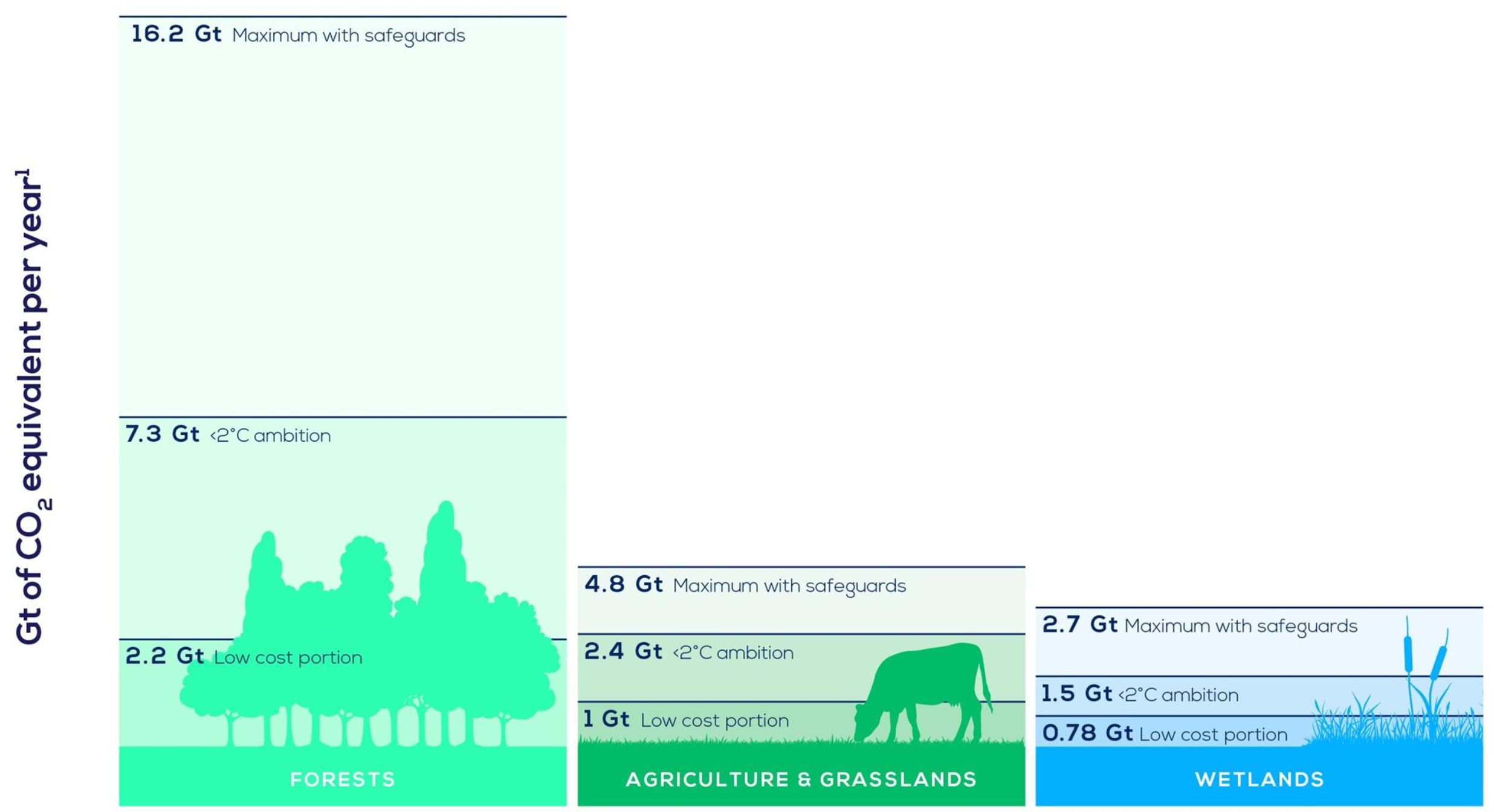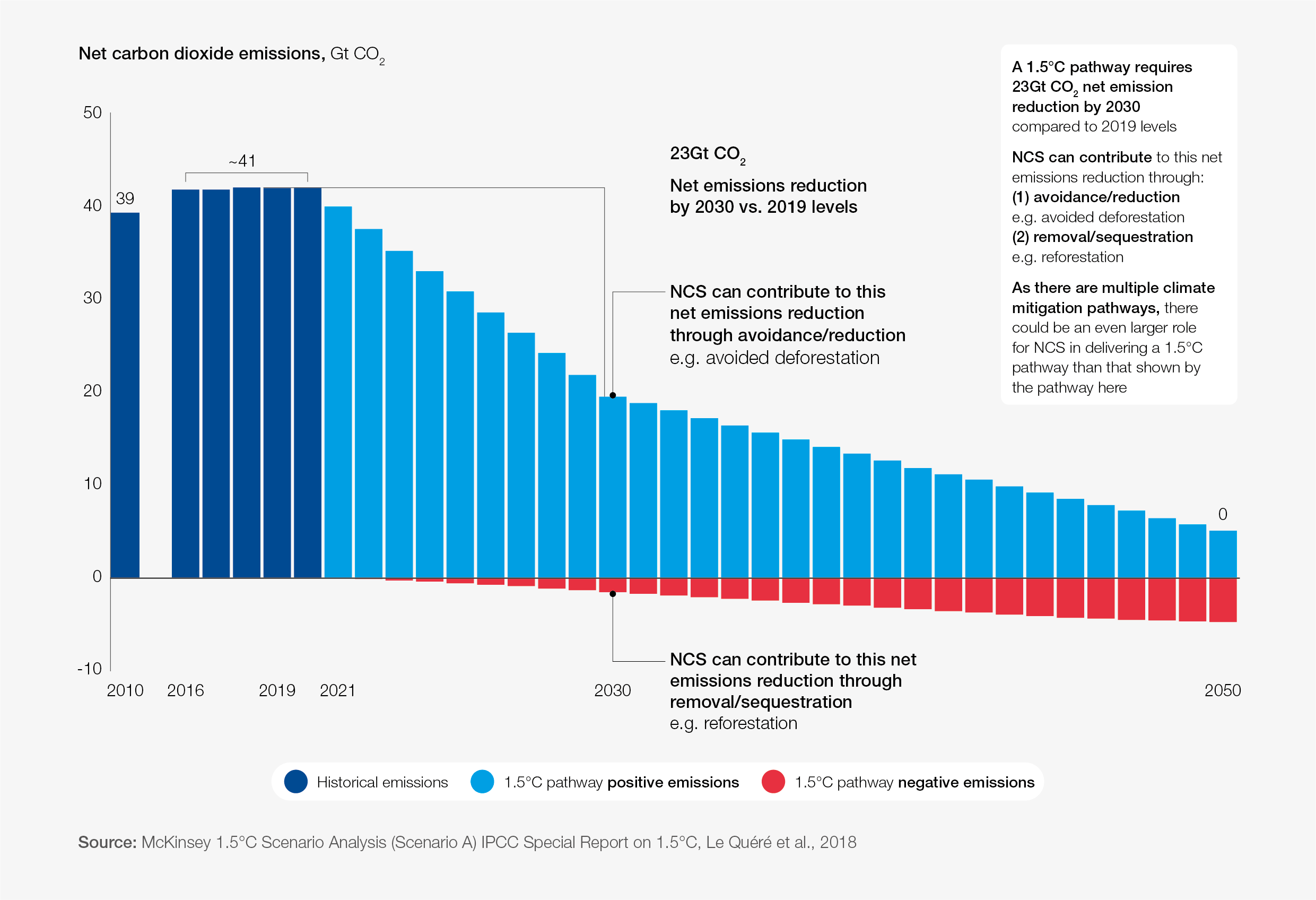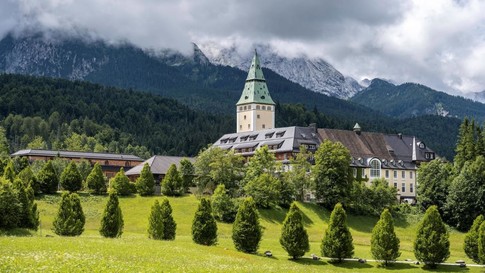- G7 leaders are meeting in Germany to discuss the most pressing global issues, including Russia, a global food crisis, and climate change.
- The summit could lead to the formation of a ‘climate club’ among member states.
- The ‘climate club’ may drive forward the decarbonizing of high-emitting industries, higher carbon prices and trade in low carbon products.
With leaders from the G7 nations meeting at Schloss Elmau in the shadows of the Bavarian Alps, they will do so knowing that climate change means less and less snow on the iconic white-capped peaks every year. High up on the agenda of the leaders of seven of the most industrialized nations will be the low-carbon transition of their harvested and producing the 1.5 °C Paris Agreement global warming target.
Climate change poses an urgent threat demanding decisive action. Communities around the world are already experiencing increased climate impacts, from droughts to floods to rising seas. The World Economic Forum’s Global Risks Report continues to rank these environmental threats at the top of the list.
To limit global temperature rise to well below 2°C and as close as possible to 1.5°C above pre-industrial levels, it is essential that businesses, policy-makers, and civil society advance comprehensive near- and long-term climate actions in line with the goals of the Paris Agreement on climate change.
The World Economic Forum’s Climate Initiative supports the scaling and acceleration of global climate action through public and private-sector collaboration. The Initiative works across several workstreams to develop and implement inclusive and ambitious solutions.
This includes the Alliance of CEO Climate Leaders, a global network of business leaders from various industries developing cost-effective solutions to transitioning to a low-carbon, climate-resilient economy. CEOs use their position and influence with policy-makers and corporate partners to accelerate the transition and realize the economic benefits of delivering a safer climate.
Contact us to get involved.
Through net zero emissions commitments since COP26, these countries have been hammering out policy changes thick and fast to phase out fossil fuels and decarbonize their harvest. At the 2021 G7 gather in the United Kingdom, leaders emphasize the need to adapt their trade and mobilize finance to ward off climate change. Here, they also set up the G7 2030 Nature Compact – a pledge to have 30% of global land and 30% of global oceans within conservation areas by 2030. Despite the need for G7 countries to agree on how to maintain pressure on Russia, and to support countries to tackle skyrocketing food prices, G7 chair and German Chancellor Olaf Schulz is determined to leave the summit with concrete progress made on climate.
Setting up a ‘climate club’
Germany, as G7 president this year, will focus the summit on sanctions against Russia and long-term plans to rebuild Ukraine. Alongside these important issues, the German president has proposed the idea of a ‘climate club’, which, as with the net zero and nature compact pledges, looks to build a global alliance among countries to deepen collaboration on delivering on their Paris pledges. The climate club would involve governments working with the private sector across three core pillars: putting a price on pollution, greening heavy industry, and increasing trade of low carbon products.
The Ukraine war has created challenges for ambitious climate policy, with Germany declaring a gas crisis As Russia tightens the screws on natural gas supply to Europe. Amidst the unfolding energy crunch, Germany has also turned on the lights at coal-fired power stations once more. For one of the world’s most industrialized nations, who has made climate action a central part of its foreign policy, assuring the security of energy systems will be a major concern at the summit.
G7 decarbonizing industry push and the First Movers Coalition
Ahead of the meeting, the G7 ministers responsible for the climate, energy, and the environment, met in Berlin to address the exacerbated impact of the Russia-Ukraine war on energy systems and the fight against climate change. The ministers committed to a multilateral response to preserve global energy security, and to help partner countries out who may find themselves in dire straits due to the gas pressure. In relation to high-emitting industries, which accounts for 30% of global emissions, the ministers stated that industrial decarbonisation must be accelerated if we’re to remain in the 1.5°C mark.
The world faces converging environmental crises: the accelerating destruction of nature, and climate change.
Natural climate solutions (NCS) – investment in conservation and land management programs that increase carbon storage and reduce carbon emissions – offer an important way of addressing both crises and generate additional environmental and social benefits.

Research conducted for the Forum’s Nature and Net Zero Report confirms estimates that NCS can provide one-third of the climate mitigation to reach a 1.5° and 2° pathway by 2030—and at a lower cost than other forms of carbon dioxide removal. This report builds on the recommendations from the Taskforce for Scaling Voluntary Carbon Marketsand identifies six actions to accelerate the scale-up of high-quality NCS and unlock markets through the combined efforts of business leaders, policymakers and civil society.

To foster collaboration, in 2019 the Forum and the World Business Council for Sustainable Development came together to establish the Natural Climate Solutions Alliance to convene public and private stakeholders with the purpose of identifying opportunities and barriers to investment into NCS.
NCS Alliance member organizations provided expert input to develop the Natural Climate Solutions for Corporatesa high-level guide to the credible use of NCS credits by businesses.
Get in touch to join our mission to unleash the power of nature.
Recognising that we cannot fully transition to a green economy with existing technologies alone, the ministers emphasized the need for rapidly scaling-up near-zero technologies. This requires expanded research and development investment to transform pollutive industries, which can lead to the creation of many new jobs. Policies to make the trading of low-carbon goods such as mutual recognition of green standards were also emphasized. With governments often the largest buyers of industrial materials like concrete and steel, the ministers noted the importance of sustainable and green procurement to accelerate technology switches across heavy industry.
The World Economic Forum’s First Movers Coalition, which tackles pollution in “hard to abate” industries, has been recognized by these G7 ministers as a key support structure for innovation to lower the costs of low-carbon technologies. At Davos 2022, over 50 corporations pledged to revamp their procurement models to strictly purchase aluminum, steel and other commodities emitting low to no carbon. Major players including Ford and Volvo have pledged that 10% of their aluminum purchases will be manufactured with near zero emission by 2030.
Not only are these steps essential to protect us from disastrous global warming, a recent study by We Mean Business and Cambridge Economics found that investing in a low carbon economy will create new jobs, generate savings for households and create sustainable economic growth. The report estimates that, by 2025, in G7 nations, the low carbon shift could create up to 1,920,000 new jobs and have energy bills fall by up to 25%.
Redistributing the price of pollution
At Davos 2022 Key policymakers and industry leaders held talks on how proceeds from a price on pollution can accelerate the shift to a greener, more just, and equitable society. A strong emphasis was placed on how a carbon price can help create viable carbon markets. The German government has staunchly supported the idea of a minimum carbon pricepushing for a €60 per ton of CO2 threshold, and carbon pricing could be a crucial way to stimulate investment in technologies and infrastructure to transform industry and cut emissions.
Strong carbon markets may enable countries to finance climate action, whilst supporting the most vulnerable members of society. Corporations can voluntarily disclose emissions under corporate emissions standards, the Paris Agreement and Glasgow Climate Pact. Net Zero Tracker, However, found that only a third of the largest companies who have committed themselves to net zero have implemented transparent low carbon transition plans.
This lack of accountability means some industry players can seriously jeopardize actual climate progress. With the EU and UK already having emissions trading schemes in place, the German government is pushing for a minimum carbon price for countries to be part of the proposed ‘climate club’. Action from the other G7 members – the USA, Japan, and Canada – is still needed.
With the EU and US already abolishing tariffs on trade in low-carbon steel and aluminum, the transition to carbon emissions in energy intensive industries could receive a major push if all G7 commit. As major trade partners of many other countries, these tariff incentives could lead to the development of low-carbon industries in other countries.
As G7 leaders come together in the Bavarian Alps to discuss Russia, the food crisis and climate crisis, they must remember that deepened climate collaboration can transform our societies to be more equitable, healthy, and resilient.
.

